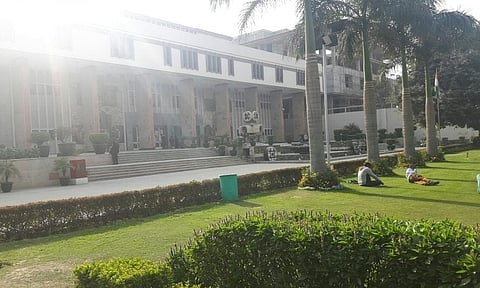
- News
- Columns
- Interviews
- Law Firms
- Apprentice Lawyer
- Legal Jobs
- हिंदी
- ಕನ್ನಡ

The Delhi High Court has ruled that a uniform retirement age should maintained for all officers of the Central Armed Police Forces (CAPF) regardless of rank or type of force, including the ITBP, BSF, CRPF and SSB forces.